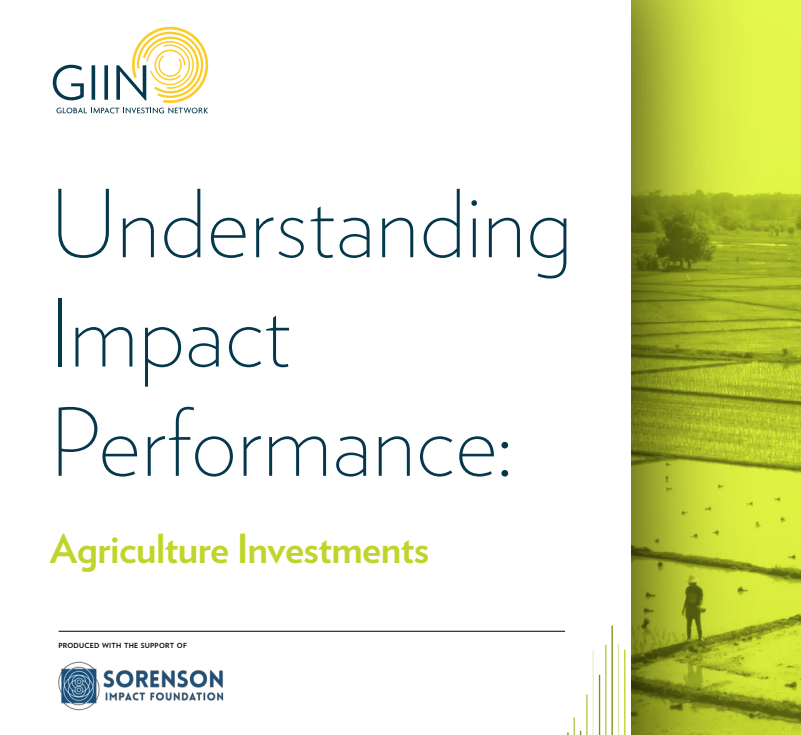CFC participates on Impact Performance Study from the GIIN
The CFC was included in the recently published study “Understanding Impact Performance: Agriculture”, by the Global Impact Investing Network (GIIN). Besides sharing the experience of the Fund in managing its impact, the CFC was featured in a spotlight case of the study on “Integrating value chains in the face of impact risk”. Two projects supported by the CFC, Coopac and Olivado, were presented, showing how the CFC has engaged with these organizations to overcome challenges and optimize their impact. Have a look on the spotlight case on page 25 of the report.
The impact investing sector has grown at impressive rates in the past years, reaching USD 715 billion in assets under management according to the GIIN. Despite this great progress, there are still formidable challenges that should be addressed if the sector wants to attract more players and eventually become part of mainstream finance. One of such challenge is a more robust and consistent impact management practice.
Impact management is the process by which impact investors can understand the effects of their activities on people and the planet, and set goals to adapt processes and improve outcomes. Over the years, the impact investing industry has made important progress in deepening the sophistication of the impact management practice. Yet, impact investors continue to identify transparency in impact performance as a key challenge facing the market. This hinders investors’ ability to efficiently deploy capital to high‑impact opportunities and inhibits new players to enter the sector.
To give its contribution on solving this issue, the GIIN has launched a series of reports on Understanding Impact Performance. These reports present a new approach for rigorously comparing impact results among investments within a sector, marking an important step in enabling investors to make these comparisons in a meaningful and transparent way. Ultimately, this research effort aims to drive incremental progress toward impact benchmarks, ratings, and other tools for analyzing and managing performance that are needed to further develop the impact investing industry.
The report on the agriculture sector provides good insights on how this segment is currently monitoring and managing its impact and proposes ways to move forward. The main lessons learned of the study are:
- Availability and shareability of impact performance data: Impact investors in agriculture are able to report impact performance data on both the depth and breadth of impact achieved by investees at scale. However, there are some remaining gaps in terms of standardizing not just which metrics investors use but also how data for those metrics are collected, calculated, and reported.
- Relevance of data to impact performance and longer-term outcomes: Investors increasingly align to standardized IRIS+ metrics, which are backed by evidence and therefore designed to indicate specific, real world outcomes. Yet translating output metrics into long-term impact outcomes remains a challenge for most investors. This finding reflects resource constraints associated with directly collecting outcomes data and highlights an opportunity to expand the industry’s ability to triangulate to outcomes based on sets of outputs using evidence-backed analytics and research methods.
The CFC was glad to be involved in the development of this study and hopes that with more credible and transparent impact data, investors will be able to make more informed decisions, increasing their overall impact and attracting more capital for the commodity sector. The COVID-19 made this search for impact a necessity to make up for the losses the humanity suffered.
The full report published by the GIIN can be accessed at: https://thegiin.org/assets/Understanding%20Impact%20Performance_Agriculture%20Investments_webfile.pdf

